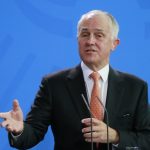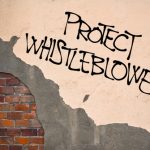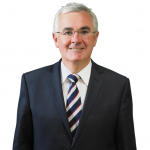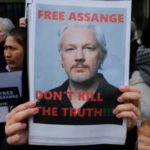Australia Prosecutes Whistleblowers Who Expose Government Misconduct
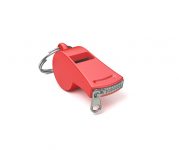
The US bombing of Laos during the height of the Vietnam War made that country the most heavily bombed per capita in human history. Today, around 50 local people – 75 percent of whom are children – continue to lose their lives every year as a result of undetonated cluster bombs.
The adoption of the 2008 Convention on Cluster Munitions was an international attempt to curb the use of these highly destructive weapons that have immediate and long-term lethal and detrimental effects upon civilian populations. The United States was strongly opposed to the agreement.
Following the recent incarceration of Julian Assange, former Australian Greens Senator Scott Ludlam said via email that he found the WikiLeaks “disclosures relating to Australia’s role in attempting to sabotage global cluster munitions negotiations at the behest of the US” as “a particular low point”.
Indeed, as journalist Philip Dorling revealed in 2011, US cables outlined that the vocal anti-cluster bomb Rudd government secretly threatened to pull out of the global ban unless signatories to it, like Australia, were still able to operate with military forces that use these weapons, like the US.
Renowned journalist John Pilger referred to the “America-besotted” Australian government’s moves to prosecute two whistleblowers over the East Timor – Timor-Leste – bugging revelations in an article, as a domestic event that correlates with the recent fate that’s befallen Assange.
Covertly stealing from the poorest
“The bugging by ASIS of the East Timor cabinet for trade reasons was probably legal under Australian law, but that should not be the case,” explained Civil Liberties Australia CEO Bill Rowlings. “Imagine how Australia would feel if a friendly nation, like Japan, bugged our cabinet room in Canberra.”
In 2004, ASIS agents disguised as aid project workers allegedly planted around 200 covert listening devices in the Timor-Leste cabinet office in Dili to ensure Australia could obtain top-secret information so as to get the upper hand in treaty negotiations over Timor Gap oil and gas fields.
Two months prior to Timor-Leste – one of the globe’s poorest nations – gaining its independence from brutal Indonesian rule in 2002, Australia pulled out from compulsory dispute settlement procedures required under the UN’s Convention on the Law of the Sea.
In 1989, Canberra had carved up the wealth in the Timor Gap with Jakarta. Although, following Timor-Leste independence, Australia refused to negotiate a permanent maritime border with the fledgling nation. Instead, it negotiated a 50 percent cut in the resources under the CMATS treaty.
The old boys’ club
“Under enhanced terrorist threat, as it was then and is now, our security services should be safeguarding Australians,” Mr Rowlings continued, “not spying for commercial advantage to end up benefiting a single private company, like Woodside, in the Timor oil resources example.”
The alleged ASIS bugging operation was carried out under Howard-era foreign affairs minister Alexander Downer to the benefit of Woodside: an Australian petroleum company. Downer subsequently worked for a period as a consultant for Woodside.
“When we’re involved in negotiations we maintain contact with Australian companies,” Downer said during a 2014 Four Corners interview that broached the subject of Woodside. “The Australian government unashamedly should be trying to advance the interests of Australian companies.”
A closed case
“The entirely wrong people are being prosecuted,” Rowlings told Sydney Criminal Lawyers, “15 years after the event.” Mid-2018, Commonwealth DPP Sarah McNaughton filed charges against former ASIS officer Witness K and their lawyer Bernard Collaery for disclosing the bugging affair.
The federal DPP’s decision to prosecute was made – as per protocol – independently, meaning the government supposedly had no hand in it. However, it did require attorney general Christian Porter to sign off, which he promptly did.
The pair are charged with the unauthorised disclosure of certain information about ASIS, contrary to section 39 of the Intelligence Services Act 2001. Witness K and Collaery are liable to up to 2 years prison due to the timing of the alleged offence. Today, it carries a maximum of 10 years gaol time.
A preliminary hearing will be held secretly in the ACT Magistrates Court in August. In late February, a “super-closed” evidence category was announced meaning Collaery cannot have his own brief of evidence. And up until then, he’d not been allowed to provide instructions to his defence team.
Government-approved transgressions
Former head of ASIS technical operations Witness K complained to the inspector general of intelligence and security (IGIS) about the Timor-Leste operation they’d been in charge of, once they learnt of Downer’s Woodside appointment.
The IGIS gave Witness K permission to speak with ASIS-approved barrister Collaery. The lawyer determined the operation was unlawful. And in 2013, Collaery was representing Timor-Leste at the Hague international court in a case relating to the incident and he tried to have Witness K testify.
Then attorney general George Brandis issued warrants for ASIO agents to raid Mr Collaery’s office, as well as the home of Witness K, whose passport was also cancelled to prevent them from travelling to Europe to testify. Then PM Tony Abbott said it was all about protecting Australian interests.
Timor-Leste agreed to drop the case in the Hague against Australia, following the Coalition agreeing to enter into genuine negations over the maritime border. This led to the signing of a new agreement in March last year, which gave the island nation a much larger share in the reserves.
Calling on the change of guard
Mr Rowlings said his organisation feels “so strongly” about the injustice of the forthcoming prosecution of the whistleblowers that they’ve written to potential future PM Bill Shorten and “probable” attorney general Mark Dreyfus asking them to revoke the charges if they win.
“Civil Liberties Australia assumes that, if the federal attorney general was required to give his permission before the DPP was permitted to prosecute the two men,” Mr Rowlings concluded, “then it’s open to an incoming attorney general to withdraw that permission to continue the case.”


